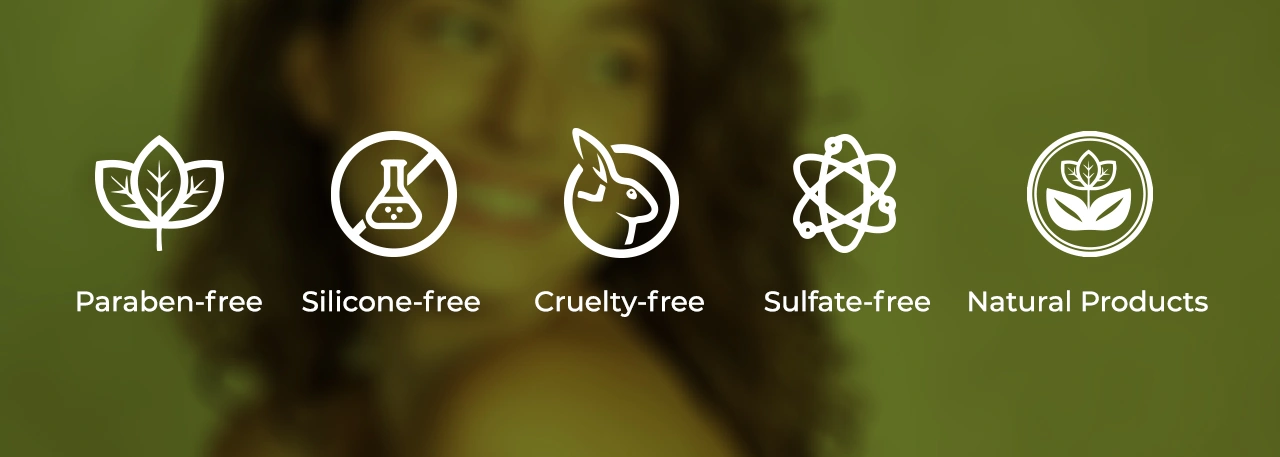HAIR FALL PROBLEMS:
Hair fall is one of the most common health concern in today’s times. Your hair is susceptible to damage by pollutants during daily travel, irregular food habits, dirt accumulation in the scalp and dandruff. Proper cleaning has therefore become an essential element in hair care.
Shampoos get rid of the dirt or soil in the hair by using a blend of ingredients called surfactants which bind with the dirt and can be easily removed when you wash with water. Shampoos also contain purpose-based ingredients like thickeners, emulsifiers, foaming boosters, scents, and color additives. It is often easy to guess the ingredients in a shampoo by reading the advertising claims on the label.
THINGS TO LOOK FOR WHEN CHOOSING A SHAMPOO:
- Harmful Chemicals
- Parabens:
- Parabens which are used as preservatives in shampoos contain estrogens which lead to hair loss.
- Sulfates:
- Sulfates are surfactants used in many cleaning and hygiene products can cause hair fall. Sulfates are aggressive detergents made of sulfur-containing mineral salts. The most common are Sodium Lauryl Sulfate (SLS) and Sodium Laureth Sulfate (SLES). Sulfates are powerful, cheap and everywhere – not just in lathering shampoos, body washes, face cleansers, and toothpastes, but also in household cleaners, laundry detergents, and dish soaps. The problem in shampoo? By stripping all the protective oils from your scalp and hair, sulfates overshoot the mark. They are too aggressive.
- Sodium Chloride:
- Hair damage can also be due to sodium chloride (better known as table salt) in your shampoos. Sodium chloride is used as a thickener and is the major reason for dry and itchy scalp.
- Urea:
- Urea is used to slow moisture loss from a product during use, to extend shelf-life, and to maintain pH. Urea also helps soften hair keratin to facilitate specific actions (coloring, styling). However, Urea can release formaldehyde, that damages hair follicles and induce hair loss.
- Parabens:
- Volumizers:
- There lies a big difference between a shampoo that actually helps to grow hair and one that contains volumizers to just give a thick look. It is better to avoid volumizing shampoos as they can eventually speed up hair loss.
- DHT Blockers:
- It is widely accepted that a major cause of pattern baldness in men and hair loss in women is DHT (Dihydrotestosterone). DHT damages the hair follicles.
- Look out for shampoos with DHT blockers. Herbal shampoos which contain vitamins to form a natural DHT blocker can help to reduce short pattern baldness and improve hair growth.
- Cayenne:
- Cayenne is a powerful hair loss fighting ingredient. Look for this ingredient when choosing a shampoo.
- Cayenne pepper has many medical and hair growth applications. It causes stimulation of the scalp by drawing blood to it and increasing the overall circulation.
- Argan Oil:
- If your hair cleaning product contains Argan oil, you have already made a good choice.
- Argan oil prevents the shrinking of hair follicles and promotes hair growth in both men and women. It also acts as a moisturizer and fights dandruff.
- Organic Products:
- And finally the best way is to switch to the natural method of hair care. Organic shampoos contain natural ingredients to strengthen your hair and are sulphate-free and paraben-free.
THE 5 BEST VITAMINS FOR HAIR GROWTH (+3 OTHER NUTRIENTS):
- Vitamin A:
- All cells need vitamin A for growth. This includes hair, the fastest growing tissue in the human body.
- Vitamin A also helps skin glands make an oily substance called sebum. Sebum moisturizes the scalp and helps keep hair healthy.
- B-Vitamins:
- One of the best known vitamins for hair growth is a B-vitamin called biotin.
- Studies link biotin deficiency with hair loss in humans. B-vitamins help carry oxygen and nutrients to your scalp, which aids in hair growth.
- Vitamin C:
- Free radical damage can block growth and cause your hair to age.
- Vitamin C is a powerful antioxidant that helps protect against the oxidative stress caused by free radicals.
- In addition, your body needs vitamin C to create a protein known as collagen — an important part of hair structure.
Vitamin C also helps your body absorb iron, a mineral necessary for hair growth.
- Vitamin D:
- Low levels of vitamin D are linked to alopecia, a technical term for hair loss.
- Research also shows that vitamin D may help create new follicles — the tiny pores in the scalp where new hair can grow.
- Vitamin E:
- Vitamin E helps prevent oxidative stress and boost hair growth.
- Iron:
- Iron helps red blood cells carry oxygen to your cells. This makes it an important mineral for many bodily functions, including hair growth.
- Iron deficiency, which causes anemia, is a major cause of hair loss. It’s especially common in women.
- Zinc:
- Zinc plays an important role in hair tissue growth and repair. It also helps keep the oil glands around the follicles working properly.
- Hair loss is a common symptom of zinc deficiency.
- Protein:
- Hair is made almost entirely of protein. Consuming enough is important for hair growth.
CAUSES OF HAIR LOSS:
- Hereditary hair loss
- Age
- Alopecia areata
- Cancer Treatment
- Childbirth, illness, or other stressors
- Coloring, Perming or Straightening hair
- Hairstyle pulls on your scalp.
- Hormonal imbalance
- Scalp infection
- Medication, causing hair loss as a side effect.
- Scalp psoriasis
- Scarring alopecia
- Sexually transmitted infection
- Thyroid disease
- Biotin, iron, protein, or zinc deficiencies
- Friction /frictional alopecia
- Poison

